Ninth Circuit
-
 Finance
FinanceJurassic Pluck: $2.95 Million T. Rex Listed On eBay, Montana Law Targets Ninth Circuit Fossil Ruling
Fossils aren’t only scientific treasures used to introduce kids to paleontology. They are also big business. -
 Morning Docket
Morning DocketMorning Docket: 03.27.19
* Attorney General William Barr says he plans to make a version of special counsel Robert Mueller’s report available to Congress and the public within a matter of weeks, and apparently the White House won’t be receiving a copy in advance of the release. [Wall Street Journal]
* Speaking of the Mueller report, Rudy Giuliani says he wouldn’t have any issues with releasing Trump’s written testimony that was submitted to Mueller. Jay Sekulow would beg to differ. [Washington Examiner]
* The EU approved the controversial Copyright in the Digital Single Market Directive, a new IP law that will govern the way copyrighted material is uploaded online and who will be liable for infringement. At least memes are exempt? [BBC News]
* Congratulations to Bridget Bade, who was just confirmed to the Ninth Circuit. She’s the 37th circuit court judge to be appointed by President Trump, who is changing the makeup of the federal judiciary, one conservative judge at a time. [Big Law Business]
* Elon Musk must appear in court next week for a contempt hearing over his Tesla tweets against self-interest that are allegedly in breach of his settlement agreement with the Securities and Exchange Commission. [CNN]
* Your bracket may be busted, but this Biglaw associate has a near-perfect track record. She’s gotten 46 out of 48 matchups right thus far, and at one point she was one of just eight people in the country with a perfect bracket. [American Lawyer]
 Sponsored
SponsoredThe Business Case For AI At Your Law Firm
ChatGPT ushers in the age of generative AI – even for law firms.-
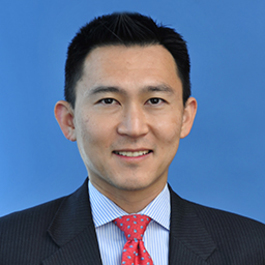 Non-Sequiturs
Non-SequitursNon Sequiturs: 02.03.19
* How have personnel changes at the Supreme Court affected the dynamics at oral argument? Adam Feldman offers this analysis. [Empirical SCOTUS]
* Ed Whelan expresses relief over the White House’s new slate of Ninth Circuit nominations. [Bench Memos / National Review]
* Can President Trump declare a “national emergency” in order to build his beloved wall? The National Emergencies Act is not a blank check, according to Brianne Gorod. [Take Care]
* Should Congress pass a “deepfakes” law? Orin Kerr has some concerns. [Volokh Conspiracy / Reason]
* What’s going on with Rudy Giuliani? Joel Cohen has a theory. [The Hill]
* Jean O’Grady is pleased to see all the competition in the legal analytics space (with Precedent Analytics from Thomson Reuters as the newest entrant) — but she’d like to see more support for the competing claims of the different products. [Dewey B Strategic]
* News organizations need stricter and better guidelines when interviewing mentally ill defendants, according to former public defender Stephen Cooper. [The Tennessean]
* Have questions about the fast-approaching February bar exam? Ashley Heidemann has answers. [JD Advising]
-
 Government
GovernmentJudge Allows Trump To Continue Making Migrant Crisis A Thing If He Wants
Trump is the only one who doesn't have a plan for the humanitarian crisis at the border. -
 Morning Docket
Morning DocketMorning Docket: 10.22.18
* Remember how Trump promised that he’d “fight for” the transgender community while he was campaigning? Perhaps he meant that he’d fight to erase them. The Trump administration is reportedly considering defining sex under Title IX “based on immutable biological traits identifiable by or before birth.” [New York Times]
* Democratic senators in Washington are refusing to return their blue slips for Perkins Coie partner Eric Miller, a Ninth Circuit nominee, and Senate Judiciary Chairman Chuck Grassley is pissed. Slow your roll, Chuck. I thought we didn’t care about blue slips anymore? [The Recorder]
* About half of lawyers in the United Kingdom say they’re not ready to deal with Brexit. That’s okay. The United Kingdom isn’t ready to deal with Brexit either — and 40 percent of lawyers think their Biglaw firms will try to escape the UK because of it. [Am Law International]
* In case you missed it, Paul Manafort showed up at the Eastern District of Virginia on Friday afternoon in a wheelchair, citing health concerns as his attorney requested an expedited sentencing date. Manafort seems to have gotten what he wanted, and will be sentenced there on February 8. [National Law Journal]
* During his inauguration speech, the University of Virginia’s new president, James Ryan — a UVA Law graduate who once worked as a UVA law professor — pledged that tuition would be free for students whose families earned less than $80,000 a year. We wonder if that applies to law school tuition as well. [WTTF Fox 5]
-
 Intellectual Property
Intellectual PropertyOld School And New: Ninth Circuit Presses Play In Music Copyright Dispute
Music licenses, song remastering, and preemption, oh my! -
 Non-Sequiturs
Non-SequitursNon-Sequiturs: 08.12.18
* Thanks to the not-so-orphaned Kennedy clerks, this Term could see a record number of clerks at the Supreme Court, as Tony Mauro reports. [National Law Journal]
* Speaking of clerks, I talk quite a bit about them and their role in this interview with Kaley Pillinger about my writing career (from Underneath Their Robes to Above the Law to Supreme Ambitions (affiliate link)). [The Politic]
* Speaking of SCOTUS, and more specifically of Judge Brett Kavanaugh’s nomination to the high court, Ed Whelan responds to the arguments of Senate Democrats against — yes, against — the prompt provision of records from Kavanaugh’s years as White House counsel. [Bench Memos / National Review]
* If Judge Kavanaugh becomes Justice Kavanaugh, how will that affect the Court’s business jurisprudence? Adam Feldman has this analysis. [Empirical SCOTUS]
* The failure of Ryan Bounds’s Ninth Circuit nomination could be a “teachable moment” for Senator Tim Scott (R-S.C.), according to Will Folks. [FITSNews]
* Speaking of disappointing failures to confirm, Paul Mirengoff shares my frustration over the inexcusable delays in Department of Justice confirmations. [Power Line]
* It’s unfair to dismiss Seinfeld as “a show about nothing”; episodes offer insight into numerous legal issues — for example, the law of conspiracy. [Seinfeld Law]
* Kal Raustiala and Christopher Jon Sprigman offer interesting reflections on how data-driven authorship might affect the way we think about creativity and copyright. [Volokh Conspiracy / Reason]
* If you’re interested in litigation finance, there’s a conference coming up next month here in New York that you might want to check out. [LF Dealmakers Forum]
-
 Morning Docket
Morning DocketMorning Docket: 07.25.18
* Lanny Davis, lawyer to Michael Cohen, was instrumental in leaking the Trump/McDougal tape to CNN last night. It’s now official: Cohen has turned on Donald Trump. Listen to it here. [CNN]
* Michael Avenatti, lawyer to porn actress Stormy Daniels, says he’s interested in discussing a settlement with Michael Cohen about his client’s “hush agreement” to keep quiet about her 2006 affair with Trump. Avenatti says a meeting was scheduled, then canceled by Cohen’s other lawyer, and now they’re calling each other liars. This is all par for the course. [CNN]
* A split three-judge panel of the Ninth Circuit has ruled that the Second Amendment allows the open carrying of guns in public. This comes two years after the court ruled that the Second Amendment did not allow the concealed carrying of guns in public. You can expect this to be appealed to the Ninth Circuit en banc. [Associated Press]
* Dentons has come out swinging with denials against a sexual harassment case that was filed by a business development specialist last month, claiming that not only is the suit without merit, but that it also “misappropriates” the #MeToo movement. We’ll have more on thisinteresting development later today. [American Lawyer]
* If you live in a two-lawyer household, should you be sharing client secrets? The Ohio Supreme Court is about to answer that question for us, since there’s apparently no case on the books about anything remotely like this. [Big Law Business]
* If you’re thinking about applying to law school ahead of a career in politics, then you may have to work a little harder to — wait, nevermind, you can go to pretty much any law school since having a J.D. seems to be the gateway to government. [U.S. News]
 Sponsored
SponsoredIs The Future Of Law Distributed? Lessons From The Tech Adoption Curve
The rise of remote work has dramatically reshaped the relationship between Lawyers and Law Firms, see how Scale LLP has taken the steps to get…-
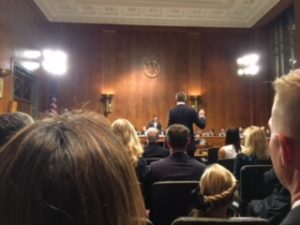
-
 Courts
CourtsDeconstructing The Defeat Of Ryan Bounds's Ninth Circuit Nomination
The nominee was a victim of unfairly late objections by Senate Republicans, strategic missteps by Republican leadership, or both. -
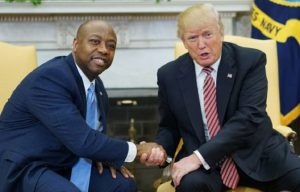 Courts
CourtsTrump Judicial Nominee Is Apparently Too Racist Even For Tim Scott
White House confirms that it's pulling the nomination of Ryan Bounds to the Ninth Circuit. -
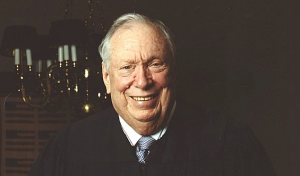 Non-Sequiturs
Non-SequitursNon-Sequiturs: 06.17.18
* Are you paying too much in mutual-fund fees? If you’re paying more than zero, then yes — or so argue Professors William Birdthistle and Daniel Hemel in this interesting and persuasive op-ed. [Wall Street Journal]
* James Comey, FBI director turned author (affiliate link), responds to the criticisms of him in the Inspector General’s report. [Althouse]
* It’s complicated — but just how complicated? Adam Feldman uses word counts and citations to measure opinion complexity during the current Term of the Supreme Court. [Empirical SCOTUS]
* Judge Alex Kozinski (Ret.) pays tribute to the memory of his late colleague on the Ninth Circuit, Judge Stephen Reinhardt. [Concurring Opinions]
* If you’re confused by why the latest Obamacare litigation over the individual mandate matters, since the mandate was rendered toothless by the recent tax reform, Professor Ilya Somin can help. [Volokh Conspiracy / Reason]
* Ethics expert Steven Lubet reviews Ryan Holiday’s book (affiliate link) about the Hulk Hogan/Gawker case — and argues that Peter Thiel’s financing of the litigation might have violated legal ethics. [American Prospect via PrawfsBlawg]
* Thomson Reuters, a leader in applying artificial intelligence in the law — we’re partnering with them on our Law2020 series, exploring how AI is affecting the legal profession — also utilizes machine learning to help people trade cryptocurrencies (among many other use cases). [Artificial Lawyer]
-
 Courts
CourtsCourt Rules Maricopa County Can Be Held Liable For Sheriff Joe's Criminal Racism
Maybe you still don't think Joe Arpaio committed any crimes, but the courts are not going to wait for you, or your president, to catch up.
Sponsored

Is The Future Of Law Distributed? Lessons From The Tech Adoption Curve

Legal AI: 3 Steps Law Firms Should Take Now

The Business Case For AI At Your Law Firm

Sponsored

Navigating Financial Success by Avoiding Common Pitfalls and Maximizing Firm Performance

Early Adopters Of Legal AI Gaining Competitive Edge In Marketplace
-
 Intellectual Property
Intellectual PropertyWhen A Crested Macaque Is A Necessary Party: Ninth Circuit Denies Joint Motion To Dismiss Monkey-Selfie Case
Why on earth is this case still in the court system? The Ninth Circuit may be preparing to hand down a very important opinion. -
 Courts, Government
Courts, GovernmentJudicial Nominees And Their College Writings: Enough Is Enough
We need a statute of limitations when it comes to the scribblings of one's youth. -
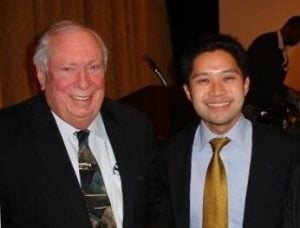 Courts
CourtsJudge Stephen Reinhardt, Liberal Lion Of The Ninth Circuit, Has Passed Away
Love or hate his jurisprudence, Judge Reinhardt's importance and influence cannot be denied. -
 Marijuana
MarijuanaNo Congressional Couch Lock: State Medical Marijuana Laws Protected Through September 30th
The Rohrabacher-Blumenauer Amendment can still be used as a shield for medical marijuana providers... for now. -
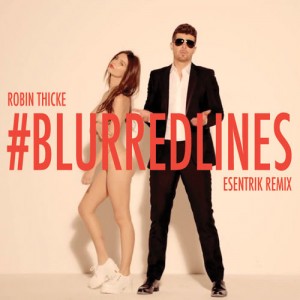 Intellectual Property
Intellectual PropertyBlurred Lines: Can You Copy A Music Genre?
This Ninth Circuit decision could damage copyright's important limits, spurring more lawsuits and chilling the creation of new music. -
 Courts
CourtsPresident Trump's Eleventh Wave Of Judicial Nominees
Look for more confirmations in the very near future. -
 Government
GovernmentCase Closed: Judge Kozinski's Retirement Stops Inquiry Into His Behavior
We may never know the full extent of what went on in the judge's chambers.